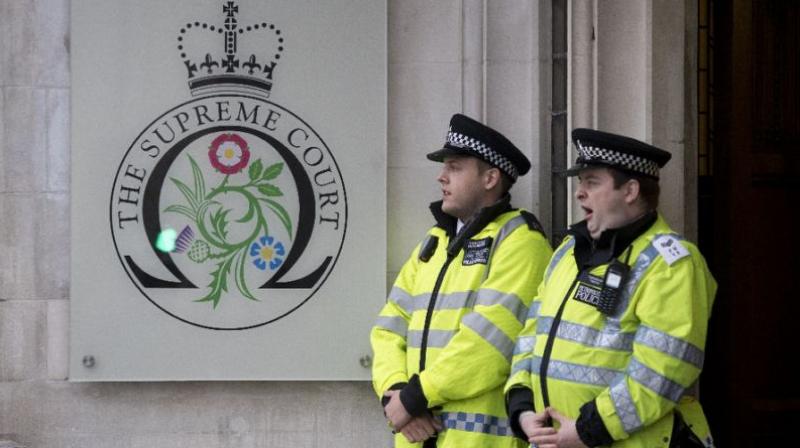Britain's Supreme Court set to rule on Brexit case

London: Britain's Supreme Court will rule Tuesday on whether the prime minister or Parliament has the right to trigger the process of taking Britain out of the European Union.
The 11 justices will either uphold an earlier ruling giving Parliament a direct role in invoking Article 50 of the EU's Lisbon Treaty or reject that ruling in favour of the government's claim it can do so without a vote in Parliament. Article 50, which has never been used before, starts the formal process of taking Britain out of the 28-nation EU.
Here are answers to some key questions about the case.
Why is it so important?
Prime Minister Theresa May has pledged to start the Article 50 process, which is expected to last two years, by the end of March.
European leaders want to get talks underway, and some British voters who backed Brexit in a June referendum are getting impatient. Having Parliament play a direct role could slow the process down.
Although the leader of the opposition Labour Party says its legislators will back Brexit out of respect for the referendum result, the process could easily be delayed in the House of Commons or the House of Lords.
What happens if the govt loses its appeal?
May's ministers have prepared several draft pieces of legislation that could be introduced in Parliament.
The goal is to craft a very short, limited bill that would give May the authority to invoke Article 50, but would be difficult to amend or tamper with.
The bill that is introduced would be shaped in large part by the actual decision, which may spell out specific requirements.
The government has drawn up various contingency plans to deal with guidelines that may be imposed by the court. The judges could say, for example, that a single vote in Parliament would be sufficient, or it could require the more time-consuming drafting of a law.
The government would likely move quickly to introduce a bill with the goal of meeting the March deadline.
Could a loss for the govt mean an end to Brexit?
It's very unlikely Parliament would vote against the government's proposal given the referendum result.
It would be seen by Brexit supporters and many who opposed it as an anti-democratic measure thwarting the will of the people.
What if the govt wins?
A reversal of the lower court ruling would give May the authority to start Article 50 negotiations when she chooses without input from Parliament.
She has said, however, that Parliament will be asked to approve any Brexit deal reached at the conclusion of the talks.
Will the ruling be a simple yes or no on the govt appeal?
No, the ruling could become more complicated. The judges must consider bids from Scottish, Welsh and Northern Ireland politicians to have their legislatures given a role in the process because Article 50 would significantly change the powers granted to them through devolution.
A ruling in that direction could slow the process, particularly since the Northern Ireland Assembly is about to be dissolved, with elections set for March 2. The Scottish Parliament is also problematic for the government, since it is dominated by legislators who want to remain in the EU.

